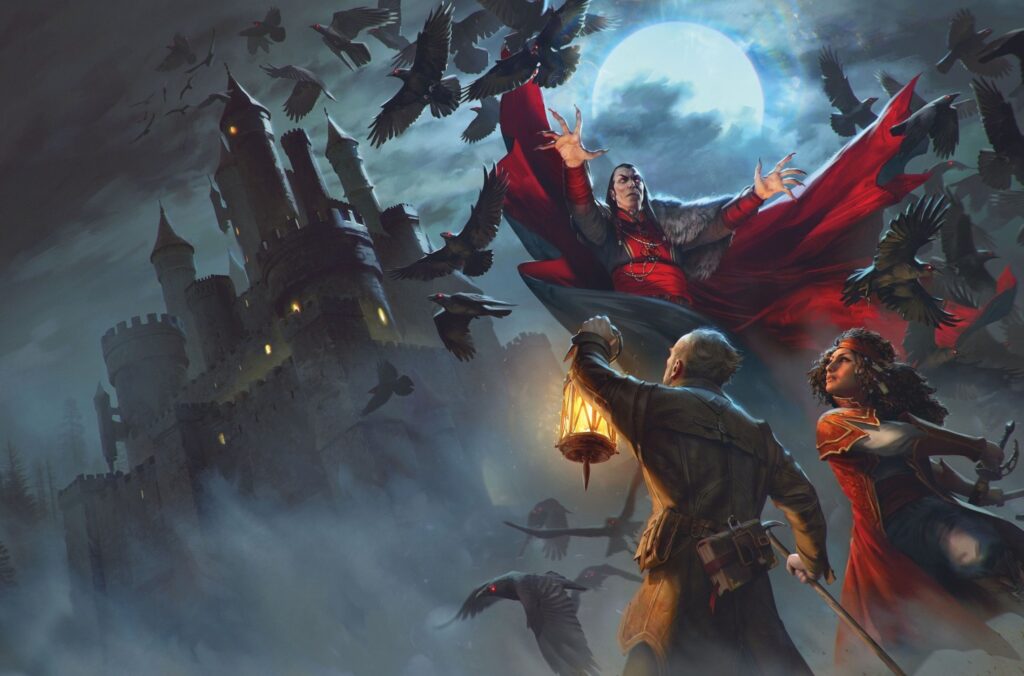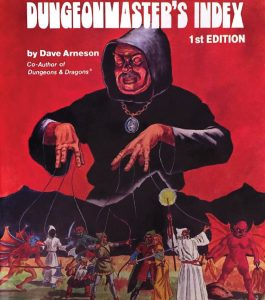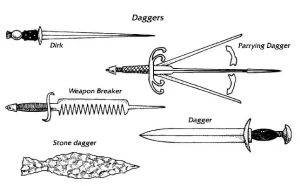
In the world of Dungeons & Dragons (D&D), vampires are often depicted as wealthy and aristocratic creatures. This wealth isn't always explained in detail, but there are several common ways it might be accumulated. The exact mechanisms through which a vampire in a D&D campaign gains wealth could vary based on the lore of the specific setting, the Dungeon Master's discretion, and the narrative needs of the campaign. If you're the Dungeon Master, you have the creative freedom to decide the source of a vampire's wealth in your campaign, taking inspiration from these concepts or creating your own unique explanation!
By considering the underlying mechanics of a vampire's wealth, Dungeon Masters can create a rich and layered narrative that offers multiple avenues for exploration, intrigue, and conflict. The choice of method can also influence the personality and goals of the vampire, shaping them into a more complex and engaging character within the story.
The sources of a vampire's wealth in Dungeons & Dragons are as diverse and multifaceted as the creatures themselves. These various paths provide rich opportunities for storytelling, character development, and adventure, allowing Dungeon Masters to craft immersive and engaging narratives that resonate with the themes and tone of their campaigns. By exploring the financial and social connections of a vampire, one can create a complex and nuanced character that goes beyond the stereotypical portrayal, offering players a challenge that involves not only combat but also intrigue, diplomacy, investigation, and moral complexity.
Aristocracy and Inheritance: Many vampires in D&D are portrayed as nobles or aristocrats from their human lives, inheriting wealth, land, and other valuable assets. They may continue to manage these estates and resources, adding to their wealth.
Vampires often hail from noble or aristocratic backgrounds, and their wealth may be a result of careful stewardship of family assets. Many vampires carry over their social status from their mortal lives, retaining control over vast estates, lands, and titles. They may continue to oversee the management of these resources, ensuring their wealth grows. In a D&D campaign, this can lead to rich storylines filled with political intrigue, power struggles, and elaborate social events. The players might find themselves embroiled in a complex family feud, tasked with uncovering the vampire's secrets, or even negotiating alliances within a multifaceted political landscape.

Manipulation and Control: Vampires possess powerful mind control abilities and can easily manipulate humans to serve their needs. Through these means, they may gain control over businesses, governments, or individuals with significant wealth, siphoning off resources for themselves.
The supernatural abilities of a vampire extend beyond physical prowess and often include mesmerizing charm and mind control. These powers can be leveraged to manipulate individuals, governments, and organizations. A vampire might infiltrate the highest echelons of a city's government, subtly directing policies to further their financial interests. Alternatively, they may use their influence to control trade guilds or monopolize certain markets. This control could lead to complex narratives where players must unravel a web of manipulation, facing moral dilemmas and tough decisions as they strive to counter the vampire's influence without harming those under the vampire's sway.
Investment Over Time: As immortal beings, vampires have the advantage of time on their side. They can make long-term investments and accumulate wealth over centuries, carefully nurturing their assets.
The immortal nature of vampires provides them with the unique opportunity to make long-term investments and patiently watch their wealth grow. They might invest in businesses, land, or even other adventurers, cultivating resources over centuries. A vampire's age allows them to amass a deep understanding of economies, markets, and social trends, making them astute financial managers. In a campaign, this can lead to intricate financial entanglements and investigative adventures, where players must trace back ancient contracts, deals, and investments, navigating legal challenges, and uncovering hidden truths.
Thievery and Intimidation: Some vampires might resort to more sinister means, such as theft, extortion, or intimidation, to gain riches. Their strength, speed, and charm can make them effective at these pursuits.
Some vampires, especially those with a more sinister nature, may resort to theft, extortion, or intimidation to gain their wealth. Their supernatural abilities enable them to become formidable criminals or leaders of criminal organizations. This aspect of a vampire's personality can lead to dark and thrilling adventures where players find themselves targeted by a vampire's criminal network or take on the task of dismantling it. From high-stakes heists to morally complex encounters with those caught in the vampire's web, this avenue provides numerous opportunities for suspense and conflict.

Magic and Alchemy: Vampires might also use their magical abilities to create or transmute objects into valuable resources, such as turning base metals into gold.
Vampires, with their profound understanding of magic and time on their hands, might dabble in alchemy or other magical crafts. Creating valuable potions, transmuting materials into gold, or forging powerful magical items could be the source of their riches. This can result in highly creative and mystical narratives, with players exploring hidden laboratories, challenging arcane puzzles, or even collaborating with the vampire to create or destroy something of immense power.
Adventuring and Treasure Hunting: Just like other characters in D&D, vampires might engage in adventuring, exploring ancient ruins, dungeons, or crypts to find valuable treasures. Their unique abilities make them adept at such tasks.
The adventurous and immortal nature of vampires might lead them to seek treasures and artifacts, delving into ancient ruins, dungeons, or forgotten crypts. Their unique set of skills makes them adept at such tasks, often accumulating rare and valuable relics. Players could find themselves in a race against the vampire, hired to assist in an exploration, or working to prevent the vampire from obtaining an artifact of great power. The blend of history, archaeology, and adventure can create a captivating storyline.
Mercenary Work: Vampires might offer their services to those who can afford them, taking on tasks or missions in exchange for wealth. Their unique set of skills would make them highly sought after for particular jobs.
Some vampires might put their unique abilities to work for others, taking on mercenary or assassination jobs. Renowned for their skills, they could become leaders of mercenary bands or feared assassins, carrying out high-profile missions for substantial rewards. This path could lead players to hire the vampire, be targeted by them, or attempt to stop a mission they deem morally reprehensible. The world of professional combat, espionage, and moral ambiguity adds depth and complexity to a campaign.







